Alternative Bankruptcy Options
San Marcos Bankruptcy Alternative Attorney
Our team at North County Bankruptcy Clinic has helped Californians successfully file petitions and obtain relief for over 40 years. However, we also recognize that bankruptcy is not necessarily right for everyone.
If you do not quality for or simply do not wish to file for Chapter 7 bankruptcy or Chapter 13 bankruptcy, our San Marcos bankruptcy alternative lawyer can walk you through all other available forms of relief. We do encourage our clients to review our FAQ page to ensure they understand what the bankruptcy process can accomplish and verify that they are not being influenced by bankruptcy myths. Our firm takes a holistic approach to every case we take on, and we will work to provide the personalized guidance you deserve. Our goal is to get you the relief you need so you can retake control of your life and move forward.
When Does It Not Make Sense to File for Bankruptcy in Southern California?
Whether bankruptcy is the right choice for you will depend largely on your unique circumstances. First, you will need to determine whether you qualify for either form of consumer relief.
You likely qualify for Chapter 7 bankruptcy if:
- You have little to no current income. You will only be eligible for Chapter 7 bankruptcy if you pass the California Means Test. If your current income is lower than the state’s median average income, you automatically qualify. If your current income exceeds the median average, you will only be eligible if you have sufficiently low disposable income, which is the amount left over after you deduct qualifying expenses.
- You have not filed for Chapter 7 bankruptcy in the last eight years. You can only receive a discharge through Chapter 7 bankruptcy once every eight years.
- You have not filed for Chapter 13 bankruptcy in the last six years. Similarly, you cannot receive a discharge through Chapter 7 if you received a discharge through Chapter 13 within the last six years.
You likely qualify for Chapter 13 bankruptcy if:
- You have reliable disposable income you can use to partially repay your debts. You can calculate your disposable income by subtracting qualifying monthly expenses from your gross monthly income. If you have enough remaining, you can likely afford a Chapter 13 repayment plan.
- You have filed for Chapter 13 bankruptcy in the last two years. You can only receive a discharge through Chapter 13 bankruptcy once every two years. (It is extremely difficult to do so in the first place, as Chapter 13 plans in most cases will last at last three years.)
- You have filed for Chapter 7 bankruptcy in the last four years. You cannot seek a discharge under Chapter 13 bankruptcy if you have filed for Chapter 7 bankruptcy within the last four years. You can potentially still file a petition and benefit from reorganization, but you will be unable to eliminate remaining unsecured debts at the conclusion of the process.
Do not hesitate to schedule a free initial consultation by calling (760) 444-4262 or contacting us online. We offer our legal services in English and Spanish.

Determine if You Are a Good Candidate
Just because you qualify for Chapter 7 or Chapter 13 bankruptcy does not necessarily mean you are a good candidate for either process. You must also evaluate the potential consequences of filing and establish what types of debt you stand to eliminate.
You may not be a good candidate for bankruptcy if:
- Most of your debts are “secured.” A debt is “secured” if it is backed by collateral. For example, your mortgage and car loan are both “secured” debts. Secured debts cannot be discharged through bankruptcy, meaning you cannot eliminate missed mortgage payments or car payments. You can typically discharge many types of unsecured debt, including credit card debt, medical debt, personal loans, and unpaid utility bills. Bankruptcy can only help you so much if a majority of your debt is secured.
- Most of your debt is student loan debt. Though student loan debt is not backed by collateral, it still, unfortunately, cannot be discharged through bankruptcy unless you can prove the obligation constitutes undue hardship. If you are mostly weighed down by student loan debt, a bankruptcy discharge will not provide the direct relief you may be seeking. We can help you explore other options for student debt relief.
- You have nonexempt assets you do not wish to lose. If you only qualify for Chapter 7 bankruptcy, you may be concerned about losing property to the liquidation process. While California’s exemption schedules allow many filers to keep most or all of their assets, there are some situations where you may have items that cannot be protected.
- You do not have enough financial resources to afford a repayment plan. There may also be scenarios where you do not qualify for Chapter 7 bankruptcy but do not have enough disposable income to meet the requirements of or protect your most important secured assets in a Chapter 13 repayment plan.
You should not attempt to avoid bankruptcy if you are primarily worried about your credit rating. You will likely do greater damage to your credit over time if you do not sufficiently address mounting debts. In many cases, bankruptcy is in fact the fastest way to improve credit in the long run. Our San Marcos bankruptcy alternative attorney is invested in your success and can assist you with rebuilding your credit post-bankruptcy.


Alternatives to Bankruptcy
Chapter 7 bankruptcy and Chapter 13 bankruptcy are not the only options for obtaining relief. If you are experiencing financial hardship, you will want to evaluate all potential solutions. It is better to start this process sooner rather than later.
Our San Marcos bankruptcy alternative lawyer can help you negotiate and pursue:
- Debt Settlements. When a creditor discovers you have retained legal representation and are seeking relief, they may be willing to settle the obligation for dramatically less than what you owe. Many creditors will allow some level of forgiveness to avoid having to deal with the bankruptcy process.
- Debt Consolidations. If you can access a line of credit or an additional loan, you may be able to consolidate your debts into a payment structure with lower interest rates. A debt management program may also be able to facilitate a reorganization of debts or a multi-year repayment plan.
- Mortgage Restructuring. If your biggest and most problematic debt is your mortgage, you may be able to avoid financial difficulties and foreclosure through restructuring. You can negotiate directly with your loan servicer to work out a new payment plan where you pay less each month. A forbearance agreement or some other repayment plan may also be viable options.

Comprehensive Financial Relief Solutions in Orange, San Diego, Los Angeles, and Riverside Counties
Get the personalized attention your situation demands. Contact us online or call (760) 444-4262 to discuss your case with our team at North County Bankruptcy Clinic today.


